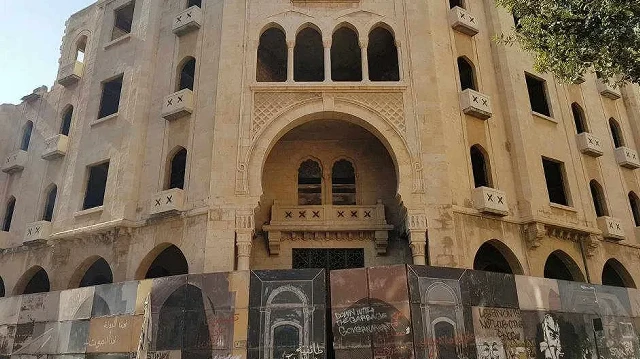
Railway station in Mar Mikhael district dates back to 19th century, built during Ottoman era
Lebanese Culture Minister Ghassan Salameh and UNESCO Director-General Audrey Azoulay laid the foundation stone Thursday for the rehabilitation of a railway station in Beirut and its transformation into a cultural landmark.
Lebanon has “agreements and examples of fruitful and beneficial international cooperation,” Salameh said in remarks on the sidelines of the ceremony, Lebanon’s National News Agency (NNA) reported.
“The station, which is being reborn today, is a model of this international cooperation,” he added.
The railway station, located in Mar Mikhael district, dates back to the 19th century, built during the Ottoman era. It was one of Lebanon’s main stations, linking Beirut with Damascus and Haifa, but ceased operations after the Nakba, or mass displacement and dispossession of Palestinians during the 1948 Arab-Israeli War.
Train services continued between various Lebanese regions — south, east and north — until they stopped altogether during the Lebanese Civil War from 1975-1990. The station has remained neglected to this day.
In the same context, Salameh launched an international fundraising campaign to revive the Grand Theater in downtown Beirut, in the presence of Azoulay, who arrived in Lebanon on Wednesday for a visit of unspecified duration.
After touring the theater, Salameh said: “The dream of many has come true: the revival, restoration and development of the Grand Theatre. The Ministry of Culture, an active player in the economic recovery process, is undertaking this work because it recognizes that it is an important element in the process of emerging from the economic and financial crisis in which Lebanon is mired.”
The Grand Theater dates back to the late 1920s. It was designed to host opera performances, which continued until the outbreak of the civil war. It has remained abandoned ever since.







